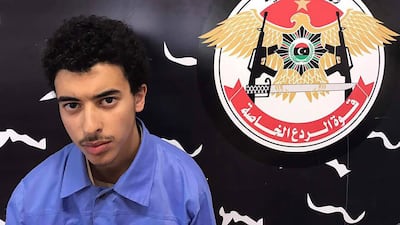Given the breadth of Qatar's links to Islamist extremists throughout the Arab world, it was merely a question of time before the sheikhdom found itself linked to the British investigation into last May's Manchester Arena terror attack, which killed 22 people and injured 500 more.
One of the key suspects in the atrocity has emerged as Hashem Abedi, the 20-year-old brother of Salman Abedi, who carried out the suicide bomb attack when the arena was packed with fans attending a concert by the US pop star Ariana Grande.
Although the brothers are British citizens, their family originally comes from Libya, where their father Ramadan was a member of the now-defunct Libyan Islamic Fighting Group (LIFG), an Islamist terror group that campaigned for the overthrow of Libyan dictator Muammar Qaddafi.
Another leading member of the LIFG was Abdul Hakim Belhaj, who these days is now a leading Islamist figure in Tripoli. Belhaj's name was on the original list of Islamist extremists Qatar has been accused of funding by the quartet of Arab countries, made up of Saudi Arabia, the UAE, Bahrain and Egypt, and his name has now been linked to the investigation being carried out by Greater Manchester Police (GMP) into the arena bombing.
Earlier this month, the GMP made an extradition request to the Libyan authorities for Hashem Abedi to be brought to Britain for questioning about his involvement in the attack. Both brothers are known to have travelled to Libya shortly before the attack took place, with Salman returning to the UK a month before carrying out the atrocity and Hashem remaining in Tripoli with his father.
Both Ramadan and Hashem were arrested by the Libyan authorities shortly after the attack, although Ramadan was subsequently released.
The British authorities now believe they have enough evidence to charge Hashem with being involved in the plot and are keen to question him about his involvement.
But the extradition request has stalled while the Libyan authorities in Tripoli decide whether or not to comply with the request, and British security officials have now accused Belhaj of being behind the delay.
Hashem is being held by Libya’s Special Deterrence Force, a militia with close ties to Belhaj who, thanks to the support he receives from Qatar, has now emerged as one of the most influential Islamist militants operating in the country.
The struggle for the future of Libya has become one of the key issues in the diplomatic stand-off between Qatar and the quartet.
Since Qaddafi’s overthrow in 2011, the quartet has been actively trying to prevent Islamists like Belhaj from taking over the country. But their efforts have been thwarted by the Qataris, who have been accused of violating the UN arms embargo by providing military equipment to Islamist groups. In addition, the Qataris are said to have paid more than US$890 million (Dh3.3 billion) in aid to Islamist militants, with the funds being shipped to western Libya by a commercial airline that is bankrolled by Qatar.
Western intelligence officials believe Belhaj, who twice met the late Al Qaeda leader Osama bin Laden, has been one of the recipients of Qatar’s largesse, which explains why Hizb Al Watan, the party he founded in 2012 and contains many former members of the LIFG, is now so dominant in Tripoli’s political landscape.
_________________
Read more from Opinion
Germany, the rock which steadied Europe, is now frustrating its reformers
Is anti-Muslim bigotry a form of racism?
With the opposition divided, Assad seeks to remain the dominant force
_________________
The suggestion that Belhaj is now involved in delaying the extradition of a key suspect in the worst terrorist atrocity Britain has suffered in decades demonstrates the pernicious influence Qatar’s support for Islamist militants has not only on the Middle East, but also the wider world.
Nor, despite the international outcry concerning Qatar’s support for Islamist extremists, does there seem to be any evidence that the sheikhdom has any intention of mending its ways. Yesterday, the quartet of Arab states announced they were extending their terror lists, adding two entities and 11 individuals they have accused of being directly funded by Qatar.
The Qataris' continued involvement in sponsoring Islamist terror groups certainly raises questions as to why the governments of countries like Britain still take a lenient view of Doha's meddling.
The confused signals being sent by many western governments was reflected this week when Qatar’s foreign minister, Sheikh Mohammed bin Abdulrahman Al Thani, was invited to talk at London’s Royal United Services Institute, one of Britain’s leading military think tanks, at a conference on counter-terrorism.
It is beyond ironic that someone so closely associated with funding and supporting Islamist terror groups in countries like Syria, in which the Qataris have been actively supporting Salafist groups such as HTS, should be invited to participate in a conference discussing how to combat such extremism.
But such is the British government's all-consuming obsession with Brexit, as well as its unwillingness to involve itself in a diplomatic dispute between the Gulf states it hopes will soon be resolved, that the Qataris are able to operate freely in London without any serious questions being asked about their activities.
The British government might be compelled to take a more proactive approach to tackling Qatar’s support for terrorism if it starts to make attempts to bring to justice those responsible for carrying out the dreadful scenes that took place in Manchester last May.
Con Coughlin is the Daily Telegraph’s defence and foreign affairs editor





